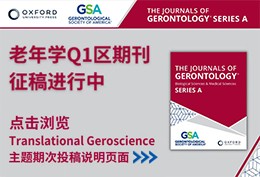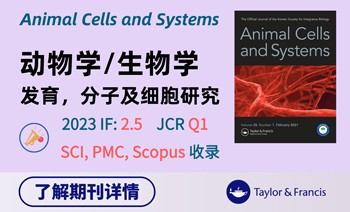-
High variability phonetic training (HVPT): A meta-analysis of L2 perceptual training studies Stud. Second Lang. Acquis. (IF 4.2) Pub Date : 2025-06-04
Takumi Uchihara, Michael Karas, Ron I. ThomsonThis meta-analysis of 79 studies evaluates the effectiveness of high variability phonetic training (HVPT) for the development of second language (L2) speech perception and explores learner-related and methodological variables that influence training effects. The overall medium-to-large effects of HVPT on L2 speech perception support the effectiveness of HVPT, for both pretest-posttest comparison (g
-
The National Federation of Modern Language Teachers Associations (NFMLTA) announces next co‐editors of The Modern Language Journal (MLJ) Mod. Lang. J. (IF 4.7) Pub Date : 2025-05-31
Anne Nerenz -
Assessing lexical proficiency in Russian as a second language using indices of lexical sophistication, diversity, and fluency Mod. Lang. J. (IF 4.7) Pub Date : 2025-05-31
Olesya Kisselev, Mihail Kopotev, Anton VakhranevLexical proficiency in a second language (L2) has long been effectively assessed through the measurement of various lexical indices, or textual characteristics that act as observable indicators of such conceptual categories as lexical richness, diversity, sophistication, and fluency. While many studies have established links between these lexical characteristics and levels of overall language proficiency
-
Cumulative L1–L2–L3 lexical similarity versus L2–L3 lexical similarity: What impacts learners’ L3 word knowledge and L3 word processing more? Biling. Lang. Cognit. (IF 2.5) Pub Date : 2025-05-30
Małgorzata Foryś-Nogala, Breno Silva, Agata Ambroziak, Olga Broniś, Aleksandra Janczarska, Borys Jastrzębski, Agnieszka OtwinowskaWe investigated how previous languages and learner individual differences impact L3 word knowledge. The participants were 93 L1-Polish learners of L2-English and L3-Italian. We tested participants’ knowledge of 120 L3-Italian words: 40 L2–L3 cognates, 40 L1–L2–L3 cognates, and 40 non-cognates, controlled for many item-related variables. The knowledge and online processing of the L3 words were measured
-
How does language distance affect reading fluency and comprehension in English as second language? Stud. Second Lang. Acquis. (IF 4.2) Pub Date : 2025-05-28
Victor KupermanAcquisition of reading skill in a second language (L2) requires development and coordinated use of multiple component skills. This acquisition is less effortful the more similar the first language (L1) of the L2 learner is to that L2. While ways to quantify the L1–L2 distance are well defined in the current literature, the theoretical status of this distance in models of L2 reading acquisition is under-specified
-
When sentence meaning biases another language: an eye-tracking investigation of cross-language activation during second language reading Biling. Lang. Cognit. (IF 2.5) Pub Date : 2025-05-28
Karla Tarin, Esteban Heranadez-Rivera, Antonio Iniesta, Pauline Palma, Veronica Whitford, Debra TitoneBilingual adults use semantic context to manage cross-language activation while reading. An open question is how lexical, contextual and individual differences simultaneously constrain this process. We used eye-tracking to investigate how 83 French–English bilinguals read L2-English sentences containing interlingual homographs (chat) and control words (pact). Between subjects, sentences biased target
-
Research agenda: Synergizing in-class and out-of-class language learning with technology Lang. Teach. (IF 4.0) Pub Date : 2025-05-23
Chun Lai, Pia SundqvistThe prevalence of digital technologies, augmented by the emergence of generative AI, expands opportunities for language learning and use, empowers new modes of learning, and blurs the boundaries of in-class and out-of-class language learning. The language education community is challenged to reconceptualize the paradigm of language learning and utilize the affordances of technologies to synergize in-class
-
Reconsidering languages learning: The interface of ideology, policy, and curricular and pedagogical practice Mod. Lang. J. (IF 4.7) Pub Date : 2025-05-20
Angela Scarino, Michelle Kohler -
-
What should we demand of socially responsible language education policy? Mod. Lang. J. (IF 4.7) Pub Date : 2025-05-20
Ursula Lanvers -
The canary in coal country: Educational policy, politics, and the dissolution of a language department Mod. Lang. J. (IF 4.7) Pub Date : 2025-05-20
Amy S. Thompson, Cynthia Chalupa, Sandra Stjepanovic -
Global geopolitics, migration, and language education in the United States Mod. Lang. J. (IF 4.7) Pub Date : 2025-05-20
Junko Mori -
Why “Real men don't speak French”: Deconstructing cultural attitudes to a language by historicizing their discursive formations Mod. Lang. J. (IF 4.7) Pub Date : 2025-05-19
Simon CoffeyGuided by Foucault's concept of “discursive formations,” the study reported here draws on primary archival and secondary source material to examine how French has been discursively shaped in England and in relation to English. Unpacking sociohistorical constructions of sameness–difference offers a productive frame to explore ideological positionings in new, interdisciplinary ways that have thus far
-
Domestic immersion in postsecondary language education: Review and research agenda Mod. Lang. J. (IF 4.7) Pub Date : 2025-05-19
Kara MoranskiDomestic immersion (DI) is an effective context for postsecondary language learning, given that DI's instructor‐curated environments promote meaningful second language use while providing abundant support for learners. However, DI is at present understudied within second language acquisition research, especially when compared to its more well‐known counterpart of study abroad (SA). This review focuses
-
Disfluency doesn’t happen in isolation Stud. Second Lang. Acquis. (IF 4.2) Pub Date : 2025-05-19
Xun Yan, Ping-Lin Chuang, Yulin Pan, Huiying Cai, Shelley Staples, Mariana Centanin BerthoThe construct of second language (L2) utterance fluency is typically operationalized through various individual temporal features. However, in natural speech, fluency (or disfluency) is often characterized by the clustering of multiple temporal features, collectively revealing the speaker’s effort in speech production or disfluency recovery. In this study, we explore the co-occurrence patterns of disfluency
-
Research engagement among K–12 world language teachers: The role of continuing professional development Mod. Lang. J. (IF 4.7) Pub Date : 2025-05-16
Caitlyn Allen PineaultMany scholars have identified teacher education (TE) as a crucial site for strengthening the research–practice interface. Much of this work has focused on formal TE opportunities, English‐language instructors, or university‐level contexts. Less is known about how other educator demographics engage with second language (L2) research throughout their careers. This mixed‐method study explores how K–12
-
Conversations abroad: The effect of interlocutor type, relationship quality, and L2 proficiency on interaction in naturalistic settings Mod. Lang. J. (IF 4.7) Pub Date : 2025-05-16
Tripp StrawbridgeStudy abroad (SA) is touted for providing language learners with regular exposure to a second language (L2) in naturalistic settings. However, few studies have examined how interaction occurs in situ. This study analyzed 13 hours of naturalistic dyadic conversations self‐recorded by 15 US‐based undergraduate sojourners studying abroad for one semester in Spain. Conversations were analyzed for interaction
-
Artificial Intelligence‐Generated Feedback for Second Language Intelligibility: An Exploratory Intervention Study on Effects and Perceptions Lang. Learn. (IF 3.5) Pub Date : 2025-05-15
Kevin Hirschi, Okim Kang, Mu Yang, John H. L. Hansen, Kyle BeloinThis study investigated the use of Artificial Intelligence (AI) models and signal detection processes to generate meaningful visual and ChatGPT‐like narrative feedback on second language (L2) English intelligibility. To test the effects and perceptions of such techniques, three groups of learners (N = 90) received visual and narrative feedback (n = 30), visual‐only feedback (n = 29), and no feedback
-
From revolution to evolution: What generative AI really means for language learning Lang. Teach. (IF 4.0) Pub Date : 2025-05-14
Mark PegrumHistory is littered with unfulfilled promises that emerging technologies – from radios to televisions, and from computers to mobile phones – would completely transform teaching and learning. Now the same promises are being made of generative artificial intelligence (AI). This presentation argues that we should not be focusing on educational revolution, but instead on educational evolution. Education
-
When Congruency Meets Figurativeness: Does Congruency Facilitation or Figurative Interference Persist in Second Language Collocational Processing? Lang. Learn. (IF 3.5) Pub Date : 2025-05-14
Jinfang Shi, Yin ZhongThe present study investigates whether congruency facilitation and figurative interference—two counteractive effects—persist in L2 collocational processing when both congruency and figurativeness are present. A primed lexical decision task was administered to 44 L1‐Chinese L2‐English learners and 40 L1‐English speakers to assess response times for figurative congruent collocations, along with their
-
Linguistic characteristics of bimodal bilingual code-blending: Evidence from acceptability judgments Biling. Lang. Cognit. (IF 2.5) Pub Date : 2025-05-13
Diane Lillo-Martin, Deanna Gagne, Melissa Avino, Jonathan D. Bobaljik, Susanne Wurmbrand, Ronice Müller de Quadros, Grace KellerCode-blending is the simultaneous expression of utterances using both a sign language and a spoken language. We expect that like code-switching, code-blending is linguistically constrained and thus we investigate two hypothesized constraints using an acceptability judgment task. Participants rated the acceptability of code-blended utterances designed to be consistent or inconsistent with these hypothesized
-
Predicting proficiency Biling. Lang. Cognit. (IF 2.5) Pub Date : 2025-05-13
Anne Neveu, Dalia L. Garcia, Britney Escobedo, Paulina Enriquez Vazquez, Miguel Mejia, Liv J. Hoversten, Tamar H. GollanWe investigated which objective language proficiency tests best predict the language dominance, balance, English and Spanish proficiency scores relative to Oral Proficiency Interview (OPI) scores (averaged across 5–6 raters). Eighty Spanish–English bilinguals completed OPIs, picture naming, semantic and letter fluency, lexical decision tests and a language history questionnaire. Except for letter fluency
-
Deconstructing the Library of Babel: Analysis of linguistic complexity in Spanish graded readers and literary works Appl. Linguist. (IF 3.6) Pub Date : 2025-05-12
Inmaculada López-Solà, Leo Wanner, Carmen López-FerreroGraded readers (GRs) are a popular language-learning resource, as they provide contextualized input adapted to any level. Still, their creation process is non-systematic and their quantity is limited. This article investigates, firstly, the progression of linguistic complexity in a series of Spanish GRs of consecutive levels, and secondly, whether literary works (LWs) targeted at specific age groups
-
English-medium instruction in European higher education: Measurement validity and the state of play in 2023/2024 Appl. Linguist. (IF 3.6) Pub Date : 2025-05-12
Peter Wingrove, Beatrice Zuaro, Dogan Yuksel, Marion Nao, Anna Kristina HultgrenNotwithstanding the wide consensus that English-medium instruction (EMI) in European higher education has grown explosively since the turn of the century (Wächter, B., and Maiworm, F. 2014. English-taught programmes in European higher education: The state of play in 2014. Bonn: Lemmens), there has been little research which addresses issues related to operationalizing EMI, nor has a pan-European update
-
Language teacher educator psychology: A research agenda Lang. Teach. (IF 4.0) Pub Date : 2025-05-08
Mehmet Sak, Rui YuanDespite the central role of language teacher educators (LTEs) in contributing to the development of language teachers in higher education and non-higher education contexts, there is a lack of theoretical and empirical work on their professional lives. One such area that remains largely unexplored concerns the psychology of LTEs. This paper argues for the need to embrace a research program that systematically
-
Syntactic and phraseological complexity in Chinese as a second language adapted teaching materials Mod. Lang. J. (IF 4.7) Pub Date : 2025-05-07
Jifeng Wu, Xiaofei Lu, Renfen Hu, Yun Lin, Fengkai LiuThe adjustment of syntactic and phraseological complexity is a key consideration in text adaptation. However, research on this topic in the context of Chinese as a second language (CSL) remains limited. Using 700 CSL reading texts graded following the newly issued Chinese Proficiency Grading Standards for International Chinese Language Education, this study examines differences in syntactic and phraseological
-
Scalar diversity and second-language processing of scalar inferences: A cross-linguistic analysis Biling. Lang. Cognit. (IF 2.5) Pub Date : 2025-05-07
Greta Mazzaggio, Federica Longo, Penka Stateva, Bob van TielWe investigate the processing of scalar inferences in first language (L1) and second language (L2). Expanding beyond the common focus on the scalar inference from ‘some’ to ‘not all’, we examine six scalar expressions: ‘low’, ‘scarce’, ‘might’, ‘some’, ‘most’ and ‘try’. An online sentence-picture verification task was used to measure the frequency and time course of scalar inferences for these expressions
-
Learner attitudes to English instruction in Germany, Norway, and Poland: Insights from the ELT Survey Lang. Teach. Res. (IF 3.3) Pub Date : 2025-05-05
Theresa Summer, Jakub Przybył, Arild Høie HenriksenLanguage learner attitudes have been linked to motivation, willingness to communicate, and attainment in second language (L2) learning research. Yet, explorations of learner attitudes remain scarce, especially concerning learners’ perspectives on the language instruction they receive in schools. To contribute to a more complete picture of L2 English instruction, we gathered data from 2,721 adolescent
-
Language and structure activation explain cross-linguistic influence in bilingual language production: Evidence from within- and across-language priming Biling. Lang. Cognit. (IF 2.5) Pub Date : 2025-05-05
Ioli Baroncini, Jacopo TorregrossaThis study investigates cross-linguistic influence in bilingual children, examining whether activation of a bilingual’s other language or a structure from that language leads to differences in the magnitude of cross-linguistic influence. We triangulate evidence from both across-language and within-language priming experiments conducted with 36 Italian–Greek bilingual children aged 7 to 11. We designed
-
Can sentiment analysis help to assess accuracy in interpreting? A corpus-assisted computational linguistic approach Appl. Linguist. (IF 3.6) Pub Date : 2025-05-03
Yujie Huang, Andrew K F Cheung, Kanglong Liu, Han XuThis study explores how sentiment analysis, a natural language processing technique, can help to assess the accuracy of interpreting learners’ renditions. The data was obtained from a corpus consisting of 22 interpreting learners’ performance over a training period of 11 weeks and comparable professional interpreters’ performance used as a reference. The sentiment scores of learners’ output were calculated
-
Enhancing disciplinary voice through feedback-seeking in AI-assisted doctoral writing for publication Appl. Linguist. (IF 3.6) Pub Date : 2025-05-03
Baraa KhuderArtificial Intelligence (AI) tools are reshaping academic writing, yet their impact on disciplinary voice in writing for publication remains underexplored. This study examines the integration of AI in a writing-for-publication course, using a pedagogical framework that emphasizes human-human interaction to develop feedback-seeking strategies. Fifty-five linguistically and disciplinarily diverse doctoral
-
Linguistic discrimination and resistance: Puerto Rican youth language ideologies Appl. Linguist. (IF 3.6) Pub Date : 2025-05-02
Claudia Matachana LópezLanguage is a fundamental part of students’ culture and identity, significantly impacting their academic experiences. Minoritized students often face linguistic discrimination through prescriptive ideologies or deficit views of their linguistic abilities. Latinx students, particularly, may encounter negative ideologies that undermine their bilingualism portraying them as incapable of speaking either
-
-
‘This is a Chinese vegetable’: Language socialization in dinner table conversations of Chinese immigrant families in the U.S. Lang. Teach. Res. (IF 3.3) Pub Date : 2025-05-01
Hao Wu, Endale Tadesse, Sabika Khalid, Chunhai GaoThis study explored the role of dinner table conversations in language socialization within three Chinese immigrant families in the U.S., examining how these interactions shape linguistic competence and cultural transmission. Analysis of audio recordings revealed that children in these families actively participated in language socialization, with older children playing a key role in socializing younger
-
-
Effects of Lexical Frequency in Predictive Processing: Higher Frequency Boosts First Language Speed and Facilitates Second Language Prediction Lang. Learn. (IF 3.5) Pub Date : 2025-04-30
Haerim Hwang, Kitaek KimThis study explores how word frequency affects verb‐mediated prediction in L1 and L2 speakers, using a visual‐world eye‐tracking task. By manipulating frequency of nouns within subjects (higher; lower) and type of verbs used as predictive cues (semantically restrictive; neutral) in sentences (e.g., The {doctor/surgeon} {opened/moved} the box), we investigated the impact of frequency of early‐processed
-
Research in English language teaching and learning in Singapore: 2017–2023 Lang. Teach. (IF 4.0) Pub Date : 2025-04-25
Sally Ann Jones, Chin Ee Loh, Robbie Lee SabnaniThis review on English language teaching (ELT) in Singapore examines 159 empirical research studies published between 2017 and 2023 in both internationally recognised peer-reviewed journals and less well-known regional journals. With this comprehensive review, we aim to raise awareness of ELT research in Singapore for international, regional, and local readership. This will also serve as a starting
-
Child heritage speakers’ reading skills in the majority language and exposure to the heritage language support morphosyntactic prediction in speech Biling. Lang. Cognit. (IF 2.5) Pub Date : 2025-04-25
Figen Karaca, Susanne Brouwer, Sharon Unsworth, Falk HuettigWe examined the morphosyntactic prediction ability of child heritage speakers and the role of reading skills and language experience in predictive processing. Using visual world eye-tracking, we focused on predictive use of case-marking cues in Turkish with monolingual (N = 49, MAGE = 83 months) and heritage children, who were early bilinguals of Turkish and Dutch (N = 30, MAGE = 90 months). We found
-
Feeling more in the language used among family and friends Biling. Lang. Cognit. (IF 2.5) Pub Date : 2025-04-24
Francesca Peressotti, Michele MiozzoMany bilinguals speak both languages proficiently and habitually; however, the contexts in which the languages are used can vary. The present study examined the effects of context variation on emotions, comparing a national language used everywhere to a regional language spoken only among family and friends. We found a higher sensitivity to disgust (Experiment 1), a greater enjoyment of humor (Experiment
-
Testing the three-stage model of second language skill acquisition Stud. Second Lang. Acquis. (IF 4.2) Pub Date : 2025-04-23
Ryo Maie, Aline GodfroidSkill acquisition theory conceptualizes second language (L2) learning in three stages (declarative, procedural, and automatic), yet competing theoretical models with fewer stages also exist, and the number of stages has never actually been tested. We tested the validity of the three-stage model by investigating the number and nature of learning stages in L2 skill acquisition. Seventy-three participants
-
Research agenda on well-being and language education Lang. Teach. (IF 4.0) Pub Date : 2025-04-23
Sarah Mercer, Carlos Murillo-MirandaThis article advocates for the expansion of research into the topic of well-being in language education. It begins by outlining key definitional concerns and then moves to outline general issues and gaps in the current body of research such as a need for a diversification in research in social contexts, working conditions, languages, cultures, as well as a clarification of the domain specificity of
-
Contrasting Fixed‐ and Mixed‐Effects Modeling in Vocabulary Research: Reanalyzing Laufer (2024) and McLean et al. (2020) Lang. Learn. (IF 3.5) Pub Date : 2025-04-22
Christopher Nicklin, Stuart McLean, Joseph P. VittaAnalyses in vocabulary research should avoid the language‐as‐a‐fixed‐effect fallacy, whereby no statistical evidence is provided to support claimed generalizations beyond the words tested in the sample. Although mixed‐effects models are widely adopted in social sciences to avoid this fallacy, second language vocabulary researchers primarily conduct potentially problematic fixed‐effects analyses. In
-
Thalamus as a neural marker of cognitive reserve in bilinguals with frontotemporal dementia Biling. Lang. Cognit. (IF 2.5) Pub Date : 2025-04-22
Nithin Thanissery, Faheem Arshad, Sunil Kumar Khokhar, Raghavendra Kenchaiah, Vikram Singh, Subasree Ramakrishnan, Jitender Saini, Narayanan Srinivasan, Bapi Raju Surampudi, Suvarna AlladiBilingualism delays the onset of dementia symptoms and contributes to cognitive reserve. However, the neural basis of this mechanism remains elusive. The few studies that have investigated neural mechanisms of cognitive reserve and bilingualism have focused on Alzheimer’s disease. This study investigated the neural basis of cognitive reserve among persons with frontotemporal dementia (FTD) using regional
-
Mobilizing assistance through troubles-complaints in L2 settings Appl. Linguist. (IF 3.6) Pub Date : 2025-04-21
Bandar Alshammari, Michael HaughSometimes we face material or practical troubles that require assistance from others to be resolved. While assistance can be mobilized through requests for assistance, it can also be mobilized through complaints. However, while L2 requests have been the object of numerous studies, there has been very little work examining how complaints can be used by L2 speakers to mobilize assistance. In this article
-
The linguicized subject: everyday linguicism and the ‘English-only’ discourse against migrants in Australia Appl. Linguist. (IF 3.6) Pub Date : 2025-04-21
Trang Thi Thuy Nguyen, John HajekIn this article, we examine how migrants with a language other than English background are exposed to linguistic discrimination in relation to the English-only discourse of their daily life in Australia, labelling such discrimination as everyday linguicism. By engaging in a scholarly conversation on subjectivity, discourse, and power, we conceptualize and make use of the notion linguicized subjectivity
-
AI-textuality: Expanding intertextuality to theorize human-AI interaction with generative artificial intelligence Appl. Linguist. (IF 3.6) Pub Date : 2025-04-21
Kok-Sing TangThis paper introduces the concept of AI-textuality that extends Bakhtin’s notion of intertextuality to encompass interactions involving texts produced by generative artificial intelligence (GenAI). Intertextuality provides a valuable lens for understanding how GenAI outputs are created through the assemblage of digital and multimodal texts from vast datasets. Building on this perspective, this paper
-
Instructed Second Language Acquisition and Second Language Pronunciation Lang. Learn. (IF 3.5) Pub Date : 2025-04-19
Dustin Crowther, Shawn LoewenInstructed second language acquisition (ISLA) inquiry emphasizes the ways in which systematic manipulation of learning conditions may facilitate second language (L2) acquisition. ISLA research has tended to prioritize grammar and vocabulary over pronunciation. However, an increase in classroom‐based pronunciation research has begun to address this oversight. Within ISLA inquiry, themes of interest
-
Understanding motivation, behaviors, and boredom in L2 learning: Variable-centered and person-centered approaches Lang. Teach. Res. (IF 3.3) Pub Date : 2025-04-19
Dawei Wei, Ping WangLanguage learning behaviors, such as procrastination and engagement, are concrete actions closely linked to learning outcomes, but our understanding of them, especially procrastination, is limited. Boredom is a ubiquitous negative emotion among second language (L2) learners. In researching learning behaviors and boredom, previous L2 studies have rarely considered all the core motivational variables
-
A critical review of L2 teaching and learning research in Japan (2019–2023) Lang. Teach. (IF 4.0) Pub Date : 2025-04-16
Terasawa Takunori, Segawa HazukiIn our critical review, we explore the progress of second language (L2) teaching research in Japan from 2019 to 2023, focusing particularly on English Language Teaching (ELT) and Japanese Language Teaching (JLT). After scrutinising numerous publications from over 50 academic journals, as well as academic books and chapters, we selected around 40 studies for analysis. These studies met our screening
-
“Man, I don’t know anything”: Students insights into Afro-Latinx (re)presentation in Spanish textbooks Appl. Linguist. (IF 3.6) Pub Date : 2025-04-16
Lillie Padilla, Rosti VanaThe present study investigated students’ perceptions of the presence or absence of Afro-Latinx representation in Spanish language textbooks and their suggestions for improving these representations. Critical race theory, critical language awareness, and critical discourse analysis were the theoretical frameworks guiding the study. Semi-structured interviews were conducted among 15 Spanish language
-
Reducing language anxiety by increasing language achievement: A new experimental study Lang. Teach. Res. (IF 3.3) Pub Date : 2025-04-15
Abdullah Alamer, Fakieh Alrabai, Richard SparksWhile researchers in the second language (L2) field often consider that L2 anxiety determines subsequent L2 achievement, an emerging line of research suggests that language skills better predict L2 anxiety. This viewpoint has yet to be experimentally evaluated, and thus it motivated the present study. Two groups of university language students enrolled in the Department of English as an L2 were followed
-
Study and instrument quality in perception-based L2 pronunciation research Stud. Second Lang. Acquis. (IF 4.2) Pub Date : 2025-04-14
Maria Kostromitina, Ekaterina Sudina, Eman BaghlafThis methodological synthesis surveys study and instrument quality in L2 pronunciation research by scrutinizing methodological practices in designing and employing scales and rubrics that measure accentedness, comprehensibility, and intelligibility. A comprehensive coding scheme was developed, and searches were conducted in several databases. A total of 380 articles (409 samples) that employed 576
-
Reading comprehension of children acquiring a transparent language as L2: A study with the simple view of reading model Biling. Lang. Cognit. (IF 2.5) Pub Date : 2025-04-14
Chiara Valeria Marinelli, Marika Iaia, Pierluigi Zoccolotti, Daniele Romano, Daniela Traficante, Rosalinda Cassibba, Francesca Vizzi, Paola AngelelliBased on the simple view of reading (SVR), we investigated factors associated with reading comprehension in Second Language (L2) minority children learning a highly consistent orthography through a network analysis. Bilingual and monolingual children participated in the research. Consistent with prior findings, reading speed supported reading comprehension for L1 learners, whereas, for L2 learners
-
Methodological innovations in language teaching research Lang. Teach. Res. (IF 3.3) Pub Date : 2025-04-12
Hossein Nassaji -
Is interpreter advantage a gift or an effect of training? Cognitive changes and interpreting acquisition at the early stage of training Biling. Lang. Cognit. (IF 2.5) Pub Date : 2025-04-11
Xueni Zhang, Binghan Zheng, Rui Wang, Haoshen HeSimultaneous interpreting (SI) is an intensive multitasking activity that requires coordination of a variety of linguistic and cognitive control mechanisms. Research has shown that interpreters perform better in tasks that require domain-general executive functions (EF), but the question remains whether such cognitive alternation is a result of interpreting experience or it reflects a selection bias
-
What is proficiency? Characterizing spoken language proficiency in older Spanish-English bilinguals Biling. Lang. Cognit. (IF 2.5) Pub Date : 2025-04-11
Dalia L. Garcia, Tamar H. GollanWe conducted a detailed linguistic analysis of Oral Proficiency Interviews (OPIs) from older Spanish-English bilinguals (n = 28) to determine which cognitive, linguistic, and demographic factors predict proficiency. In the dominant language, older age was associated with lower proficiency scores, but aging effects were not significant after accounting for cognitive functioning scores. In the nondominant
-
Validity evidence for an EIT as an assessment for Spanish heritage speakers and L2 learners Stud. Second Lang. Acquis. (IF 4.2) Pub Date : 2025-04-10
Sara Saez-Fajardo, Melissa A. BowlesAs the field of heritage language acquisition expands, there is a need for proficiency to compare speakers across groups and studies. Elicited imitation tasks (EITs) are efficient cost-effective tasks with a long tradition in proficiency assessment of second language (L2) learners, first language children, and adults. However, little research has investigated their use with heritage speakers (HSs)
-
Is planning time beneficial for anaphora resolution? A corpus-based study of L1 Spanish–L2 English learners Lang. Teach. (IF 4.0) Pub Date : 2025-04-10
Elena García-Guerrero, Cristóbal LozanoPrevious research has investigated the effect of planning time (PT) on L2 learners’ production regarding fluency, complexity, and accuracy, but its influence at the discourse level has been overlooked. Thus, this study explores the influence of PT on learners’ written performance regarding anaphora resolution (AR) and their pragmatically (in)felicitous choices of referring expressions (REs) in discourse
-
Producing cognitive discourse functions in disciplinary Basque writing: developmental patterns across secondary education and L1 profiles Int. J. Biling. Educ. Biling. (IF 2.5) Pub Date : 2025-04-10
Roberto Arias-Hermoso, Eneritz Garro Larrañaga, Ainara Imaz Agirre, Christiane Dalton-Puffer -
On Umbrellas and Omnibuses: A Response to Open Peer Commentaries Lang. Learn. (IF 3.5) Pub Date : 2025-04-09
Bram Bulté, Alex Housen, Gabriele PallottiThis response to the commentaries on our conceptual review article on structural complexity and learning difficulty in second language acquisition (SLA) clarifies the scope and objectives of our framework, the challenges of defining and measuring complexity and difficulty, and the broader relevance of our proposal for both empirical research and theory building in SLA, including its relationships to


















































 京公网安备 11010802027423号
京公网安备 11010802027423号